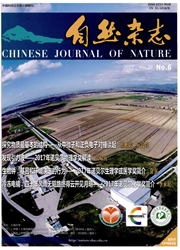

 中文摘要:
中文摘要:
以海藻酸钠作为水基润滑添加剂,研究面接触条件下石英玻璃片摩擦副的摩擦学特性.采用红外光谱仪分析海藻酸钠的分子结构,采用3D表面轮廓仪测量试样的表面形貌,在微摩擦磨损试验机上测试不同摩擦副的摩擦系数.结果表明:面接触条件下,下试样表面粗糙度Ra值为0.555 nm时,上试样表面粗糙度大于下试样表面粗糙度时方可相对滑动,上试样表面粗糙度越大,摩擦系数越大.上下试样表面粗糙度合理搭配可保证海藻酸钠溶液能形成稳定的润滑膜,获得极低的摩擦系数.加入饱和氯化物破坏海藻酸钠水合分子层,摩擦系数急剧增大.海藻酸钠水基润滑层包括水分子层和海藻酸钠水合分子层,其中海藻酸钠水合分子层起主要作用.
 英文摘要:
英文摘要:
By using sodium alginate as a water-based lubricating additive, the tribological properties of self-mated quartz tribo-pairs were explored in the condition of surface contact. The molecular structure of sodium alginate was analyzed by fourier transform infrared spectroscopy. The surface topographies of worn quartz surface before and after sliding test were measured by a 3D optical surface profiler. The tribological experiments for tribo-pairs of different surface roughness combination were carried out by using a micro-tribometer. The results indicate that, for lower specimen with Ra of 0.555 nm, no stable sliding occurred unless surface roughness of the upper specimen was higher than 0.555 nm. In addition, the higher surface roughness, the higher friction coefficient. Stable lubricating film at the tribo-interface is responsible for the extremely low friction coefficient, as long as the upper and lower specimen had matched surface roughness. By adding saturated chloride to the solution, the hydration layer of sodium alginate was destroyed, and as a result, the friction coefficient increased suddenly. The lubricating film was composed of a water layer and a hydration layer of sodium alginate, in which the latter was dominant.
 同期刊论文项目
同期刊论文项目
 同项目期刊论文
同项目期刊论文
 期刊信息
期刊信息
